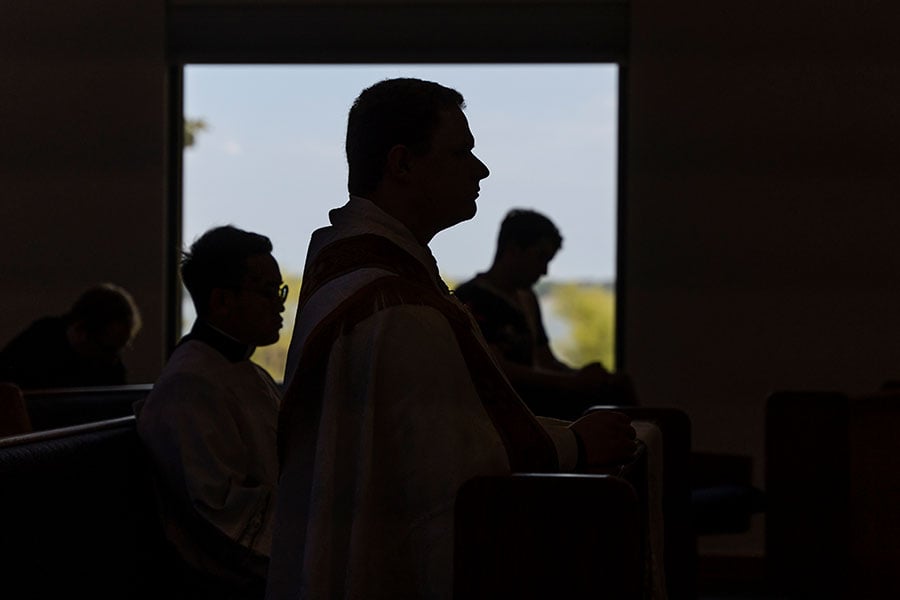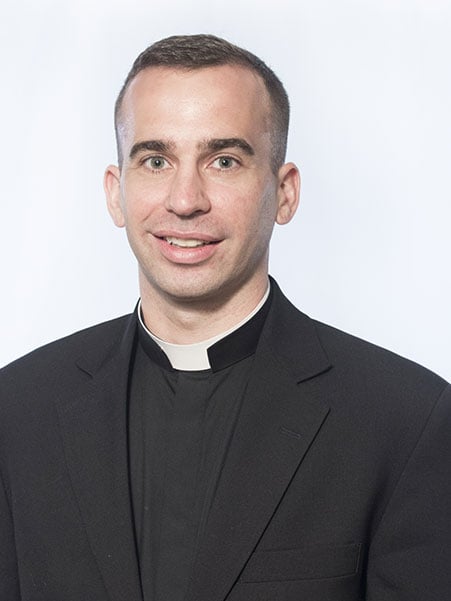The gift of celibacy

NTC/Juan Guajardo
As I finish my first year of being on faculty at St. Joseph Seminary College, I have gained a lot of insight about the particular struggles of this generation of young people in discerning a vocation. I offer some words of reflection about one struggle, namely celibacy, that might help those discerning a religious vocation or those who help foster vocations in the Church.
Seminarians, or any young person, can struggle with the thought of being celibate for their entire lives as a priest or in religious life. Even when I was in seminary, the thought of missing a wife, a lifelong companion, and children seemed extraordinarily difficult. The desire for marriage and family is good; it is natural; it is from God. But not all are called to the married state.
Jesus Christ talks about this when He says, “[A]nd there are those who choose to live like eunuchs for the sake of the kingdom of heaven. The one who can accept this should accept it” (Matthew 19:12).

St. Paul also speaks about those who remain unmarried. “Now to the unmarried and the widows, I say: It is good for them to stay unmarried, as I do. But if they cannot control themselves, they should marry, for it is better to marry than to burn with passion” (1 Corinthians 7:8-9).
He says he wished all were like him by practicing celibacy (7:7), but he recognizes not everyone has this gift. He also speaks about marriage as a concession (7:6), a vocation for those who do not have the gift of being celibate.
Why does St. Paul want people to be unmarried? Because it is a gift from God to have an undivided heart. “An unmarried man is anxious about the things of the Lord, how he may please the Lord. But a married man is anxious about the things of the world, how he may please his wife, and he is divided” (1 Corinthians 7:32-33).
The heart of an unmarried person belongs entirely to serving the Lord, thinking of nothing but to please the Lord. The married man is bound to think of his wife, his children, and the world. His heart is divided.
Since the first century, numerous saints have received the gift of celibacy. They have imitated Christ and St. Paul by serving the Lord with an undivided heart. Their celibacy was a powerful sign to the world of the eschatological reality, the “End Times”: “At the resurrection, they neither marry nor are given in marriage but are like the angels in heaven” (Matthew 22:30). Celibacy tells others that we are made for something more than this world: we are made for eternity with God.
Celibacy is difficult, but is not the Lord’s grace sufficient (2 Corinthians 12:9)? Is He not the one who gives us the gift to lay down our lives for others? Will He abandon us after we have made Him our portion and cup (Psalm 16:5)?
One practical way for someone to find out if he or she has the gift of celibacy is by joining the seminary or religious community. For example, St. Thomas More, Lord High Chancellor of England, wanted to be a monk. After joining the monastery, he eventually realized he did not have the gift of celibacy and left the monastery saying, “Better a chaste husband than a licentious priest.” He married soon after.
It may seem extraordinarily difficult for young people to discern celibacy, but they are not alone! No saint found it to be easy! They had to rely on the daily bread of God’s grace, and they received a hundredfold in this life and in the next for accepting this gift. I pray more people consider giving the Lord the firstfruits of their hearts by first considering a religious vocation — to find out if they have the beautiful gift of celibacy.
